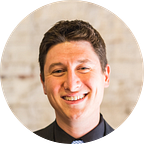Why I left a Dream Job for Data Science
--
Greetings data science community! My name is Alex. I am a data scientist and classical musician.
Prior to March 2020 I would have called myself a classical musician only. March 13, 2020 is still fresh in my mind. I was sitting in the back row on the stage of Meymandi Concert Hall.
I was serving as the Associate Principal Trumpet of the North Carolina Symphony. I was in rehearsal for the upcoming weekend’s concert series, Thibaudet Performs Ravel, with Grant Llewellyn conducting. This was truly one of the best concert cycles I can remember playing. The literature was beautiful and complex. The focus of every musician was extraordinary. The conductor and soloist seemed to have boundless energy. These are the moments classical musicians live for.
At the end of our dress rehearsal, our CEO announced we had to cancel the concert series due to COVID-19. A group of friends went out for drinks at a crowded brewery just before 5 pm. We sat nervously discussing how many weeks we would be out of work. 2 weeks? A month? One friend threw out the possibility that the rest of our season would be canceled or postponed. Respectfully, I nodded my head acknowledging their comment while internally dismissing the notion.
I live in Raleigh, NC with my wife, two beautiful and active children, a dog and two cats. Before moving to Raleigh, Amy and I attended the University of Michigan School of Music, Theater and Dance and Rice University where we earned our Bachelor of Music and Master of Music, respectively. Amy and I have been professional musicians since graduation in 2011.
COVID-19 has forced many of us to reconsider our careers. Since the NC Symphony has canceled or postponed all scheduled live performances, I have found myself in a predicament: should I wait for my life and career to resume or explore other interests?
Although mostly fun and rewarding, the music industry has a dark side: monotony, pressure, limited upward mobility, limited job prospects, auditions. Winning an audition to become a full-time member of a professional symphony orchestra is not only difficult, but it’s also rare. My parents, as parents do, told me that I can achieve anything I want in life if I put my mind to it. Little did I know how difficult this path was. The struggle is real, y’all.
How many music students hear this same message from their parents and mentors when deciding on what to do after high school? Do they know how difficult it is to achieve success? Wait, what does it mean to be successful? How many music school students get jobs in professional orchestras anyway? Which music school is the best? How do you determine the “best music school”? Is it how much money students earn upon graduation or whether they’ve checked the box of winning an audition? I’ve stayed up so many nights discussing these types of questions with friends (mainly Toby) and Amy.
Toby, one of my best friends and also a professional trumpeter turned data scientist, exposed me to the field. I’d always thought that if it weren’t for my busy performing schedule I’d love to learn data science techniques to dive deep into my questions about the classical music industry; I’d be interested in creating a predictive model for “success” in the orchestral realm. To my knowledge, no datasets or analyses exist that explore careers in classical music. This type of data and modeling would be very useful to aspiring classical musicians. How many hours should I practice a day? Which music schools should I apply to? Will my race be a factor in getting a job or being successful in the field? How much money will I earn? How likely am I to succeed?
I hope to answer these questions for the next generation of music school applicants.
On August 24, 2020, I started the Data Science Immersive course at General Assembly with Jeff Hale and Jacob Koehler as the lead instructors. I am amazed at the amount of knowledge these two have in the field and am excited to continue learning from them.
The start of my journey into data science is bittersweet. I enter knowing that I may have abandoned my career in classical music. Although the thought is saddening and slightly frightening, I remain optimistic and truly excited for the future. I look forward to continuing to share my journey.
Check out my website or instagram. Data science content coming soon!
